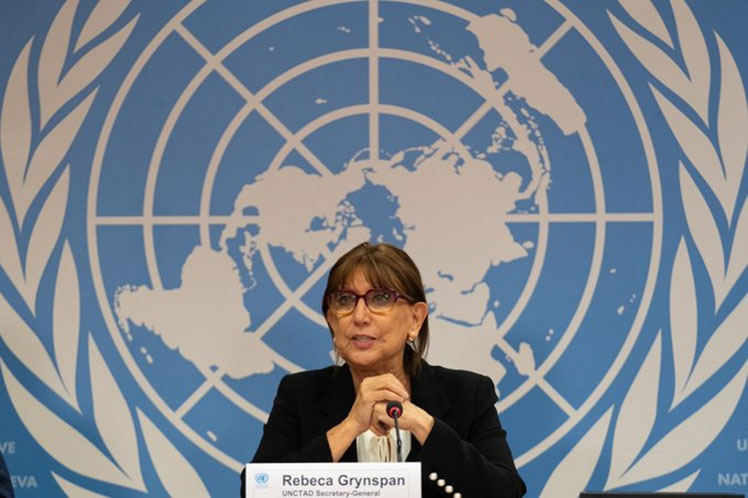UNCTAD´s Report 2021, released on Sept. 15, said this year will see the global economy bounce back thanks to the continuation of radical policy interventions begun in 2020 and a successful (if still incomplete) vaccine roll-out in advanced economies.
It underscored that constraints on fiscal space, lack of monetary autonomy and access to vaccines are holding many developing economies back, widening the gulf with advanced economies and threatening to usher in another lost decade.
‘These widening gaps, both domestic and international, are a reminder that underlying conditions, if left in place, will make resilience and growth luxuries enjoyed by fewer and fewer privileged people,’ said Rebeca Grynspan, the secretary-general of UNCTAD.
‘Without bolder policies that reflect a reinvigorated multilateralism, the post-pandemic recovery will lack equity, and fail to meet the challenges of our time,’ she said.
In 2022, UNCTAD expects global growth to slow to 3.6%, leaving world income still 3.7% below where its pre-pandemic trend would have put it.
The report’s modeling projections point to real growth of global trade in goods and services of 9.5% in 2021.
In 2021, the positive trajectory of commodity prices from the trough observed in the second quarter of 2020 has continued. The aggregate commodity index registered an increase of 25% from December 2020 to May 2021, mainly due to the price of fuels, which surged by 35%, while that of minerals, ores and metals registered an increase of 13%.
pgh/Pll/mem / lpn










